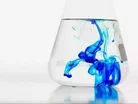Avertana gains recognition for innovative extraction process

At the 2019 IChemE Global Awards, Avertana won in the sustainability category for its chemical engineering process of extracting minerals from industrial waste.
Announcing its win on the company’s website, Auckland-based Avertana was pleased to accept the honour from what it called the “world’s most prestigious chemical engineering awards”. The innovative extraction process developed by Avertana “uses carbon-free inorganic chemistry to turn waste into valuable raw materials, with nothing left over. It does this cost effectively and with attractive economic returns”.
Using this process, the company has been able to converge on four key raw materials: titanium dioxide, gypsum, alum, and epsom salts, each with important industrial applications in construction, agriculture, and manufacturing.
Recognising that waste can be a raw material in and of itself, Avertana has demonstrated to the industry that profits can be made from a product previously deemed unwanted or unusable.
It is with pioneering improvements like this that other companies in the raw materials sector can improve both their sustainability and profitability.
Sustainability best practices for the raw materials sector
Reduced use of fossil fuels: Plastic materials have conventionally been produced from a fossil fuel base, particularly petroleum, but this is not the only option available. According to research conducted by Wageningen University in the Netherlands, “plastics can also be produced with plant-based raw materials such as maize stalks or sugar beets”. Current industry refinery processes are advanced enough to make all plastics biobased instead, although, as of a survey conducted in 2014, only 0.2% of global polymer companies exploit this potential.
SEE ALSO:
Maintaining water supplies: Water is an essential part of the chemical extraction process. Fresh water is used by processing plants for vital daily functions, such as diluting, cooling, and transporting chemical products. The resulting fluid is then considered an unusable waste product. Avertana has already demonstrated an effective, environmentally-conscious method of using this waste as a resource, but best practices in the industry also recommend purification to allow reuse, desalination, and use in hydroelectric power generation to ensure water is as sustainably used as possible.
Adoption of the circular economy: Outlined by Accenture, the circular economy model seeks to break the ‘one-use’ trend regarding production resources and focus investment on products, components, and materials that can be reused wherever possible. Opportunities in this vein include using materials that are comfortably recyclable and manufacturing hardier components that can withstand frequent reuse/reapplication. Using this model, companies will reap higher utility and value from their operations and consume less energy.
For more information on business topics in ANZ, please take a look at the latest edition of Business Chief ANZ.
- How Chinese companies can strengthen digital transformationTechnology
- Accenture – C-suite transformation is a business imperativeLeadership & Strategy
- Seven ways Asia is embracing the nascent metaverse industryTechnology
- Accenture tech leaders co-author new playbook for successLeadership & Strategy



